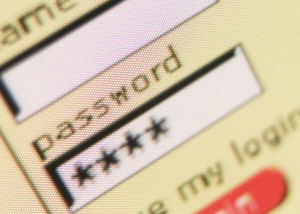“We…can strategically train our attention. When it comes to email and the Internet, it’s critical that we do so to give ourselves more time to think more reflectively, creatively, and deeply in an increasingly complex world.” — Tony Schwartz, president and CEO of The Energy Project
“If left unchecked, ‘info-mania’ will damage a worker’s performance by reducing their mental sharpness. This is a very real and widespread phenomenon.” — Glenn Wilson, British psychologist
“When you log on, you feel like you’re in touch with everything that’s going on in the world. But what you really are is out of touch — literally. There is no touching anymore.” — Judith Regan, Regan Books
Would it surprise you to learn that paying too much attention to your email can lower your IQ by as much as 10 points? That’s the conclusion of a recent British study, which suggests that constant connection to the info-world via your handheld, smartphone, or computer can affect you as badly as missing a night’s sleep—and worse than smoking marijuana.
Electronic technology can be a boon to productivity; that’s indisputable. Nowadays, it’s easy to contact just about anyone at the touch of a button. You can accomplish tasks almost anywhere, during what would otherwise be unusable downtime. With access to the Internet, even doing research is a snap, whether you’re sitting in a Starbucks or in your corner office.
The problem is, it’s easy to forget that email, cell phones, Blackberries, iPads and the like are supposed to be tools. You should be using them to maximize your productivity; they shouldn’t be controlling your behavior. But somehow, many of us have gotten to the point where we’re terrified to be disconnected even for a moment, just in case we miss something. When the incoming message alert chimes, we drop what we’re doing to check it, like Pavlov’s dogs drooling when the bell rings. Worse, we’re like dogs on leashes, pulled this way and that whether we like it or not.
To be truly productive, you need to slip your electronic leash.
You have only so much energy, so you can’t waste it on trivial things like answering emails or cell phone texts the moment they appear. You need to be able to focus like a laser beam on your important tasks, without letting distractions yank you away from what really matters. No matter how minor the interruption, it takes time to refocus and get back into the flow, which can’t help but impact your productivity.
Back in 2009, I introduced the concept of Obsessive-Compulsive Social Media Disorder (OCSMD). As the name suggests, OCSMD is associated primarily with compulsively checking Facebook and obsessively tweeting away on Twitter, but I think it’s applicable for electronic media of any kind, including email and texting. Sure, these media may be important to you, even productive in some ways—but you don’t need to check any of them right this minute. This is especially true when doing so interferes with your work or (ironically) with face-to-face social interaction.
Short of completely eschewing this technology, which is no longer a reasonable option, you have to set real, solid strictures on its use. Look, you’re not a machine. You can’t always be on, and you certainly shouldn’t stay connected when you should be recharging. Truly productive people realize the need to get away from work occasionally, to socialize and be human, to take breaks when they need to—even to disconnect from the workaday world for a while and take a vacation. Given enough rest, completely disconnected from your electronics, you can accomplish more when you are connected.
When you refuse to set boundaries to limit your use of electronic technology, then you’re setting yourself up to fail. You may still be able to function, but you’ll never be able to achieve your full potential.
To recapture your productive techno-edge, start small. Disconnect for a half-hour a day first, then stretch it to an hour. At lunchtime, step away from your desk, turn off your Blackberry, and leave the building. Sit in the park. Go out to eat. Visit with a friend. Get to know a colleague better. In other words, do the directly social things that humans have done for 99.9% of our history.
When you’re working, don’t leave your social media sites open just so you can watch things come in, even if you think they may be business-related. Turn off all your message alerts, whether visual or auditory, because they’ll absolutely derail your train of thought. Even if you don’t answer a message immediately, just knowing it’s waiting will inevitably affect your productivity. All you really need to do is check electronic media once or twice a day. Ditto with returning phone calls. Pick a block of time when you can do both efficiently, and stick to it.
Remember that your electronic tools are intended to help you be more productive. That’s it. Ultimately, they’re your servants: so to maintain your productive edge—and your sanity—never, ever let yourself become theirs.




[…] When you “go home” in the evening (even if you work at home), be present with your loved ones. Stop checking email and turn off your cell phone and your work brain. You need time to handle personal business, plan family time, pay bills, go to […]